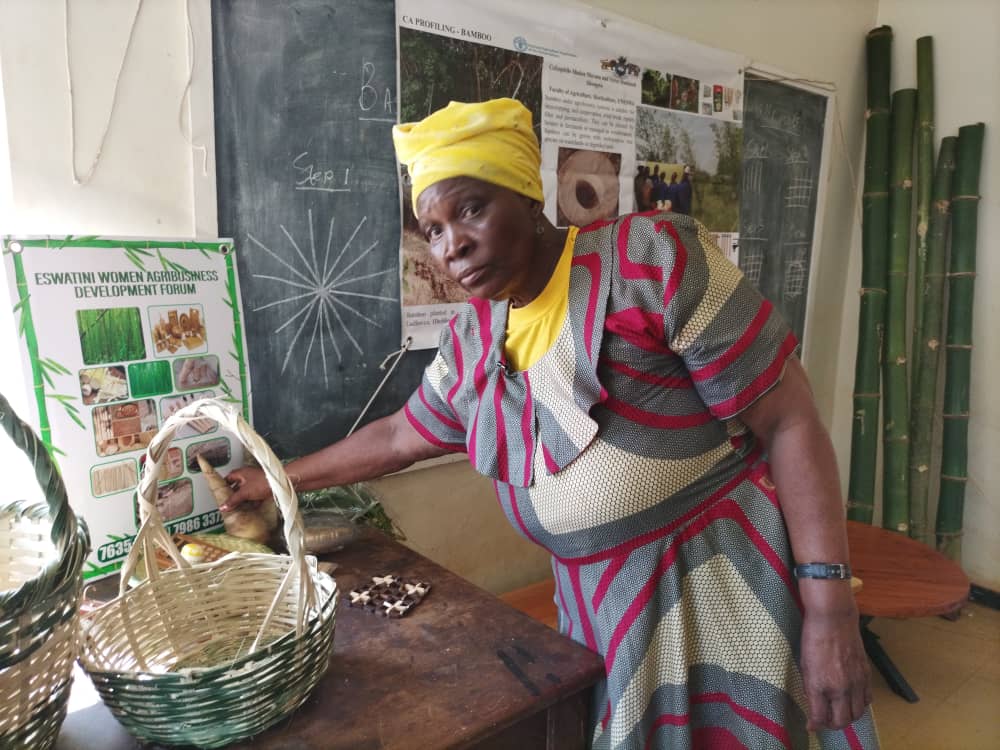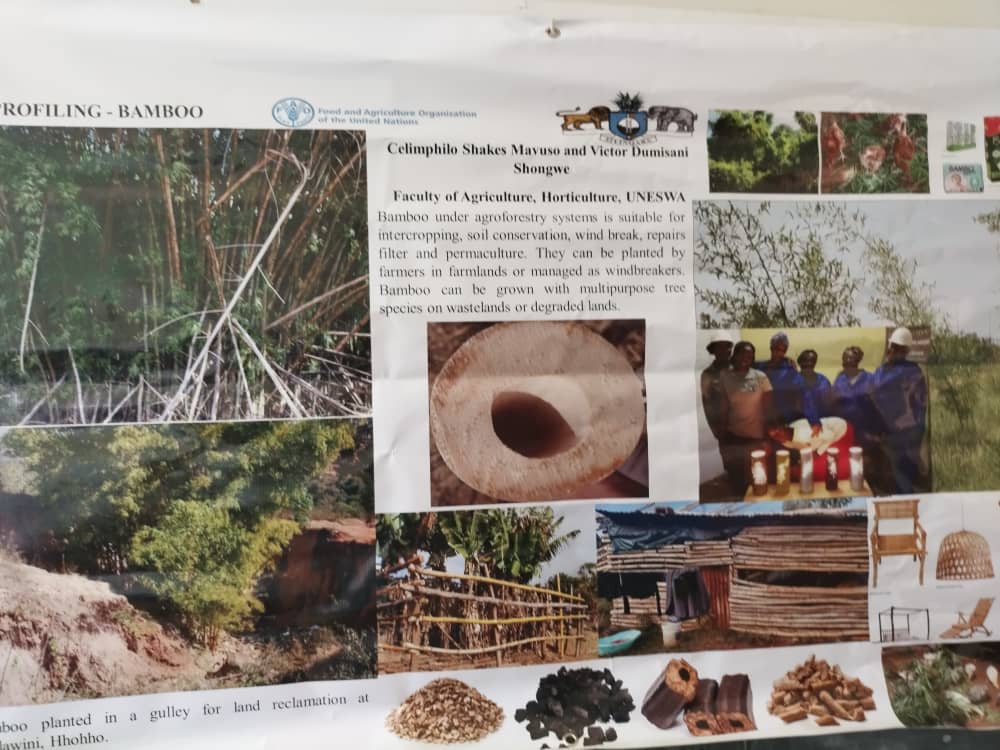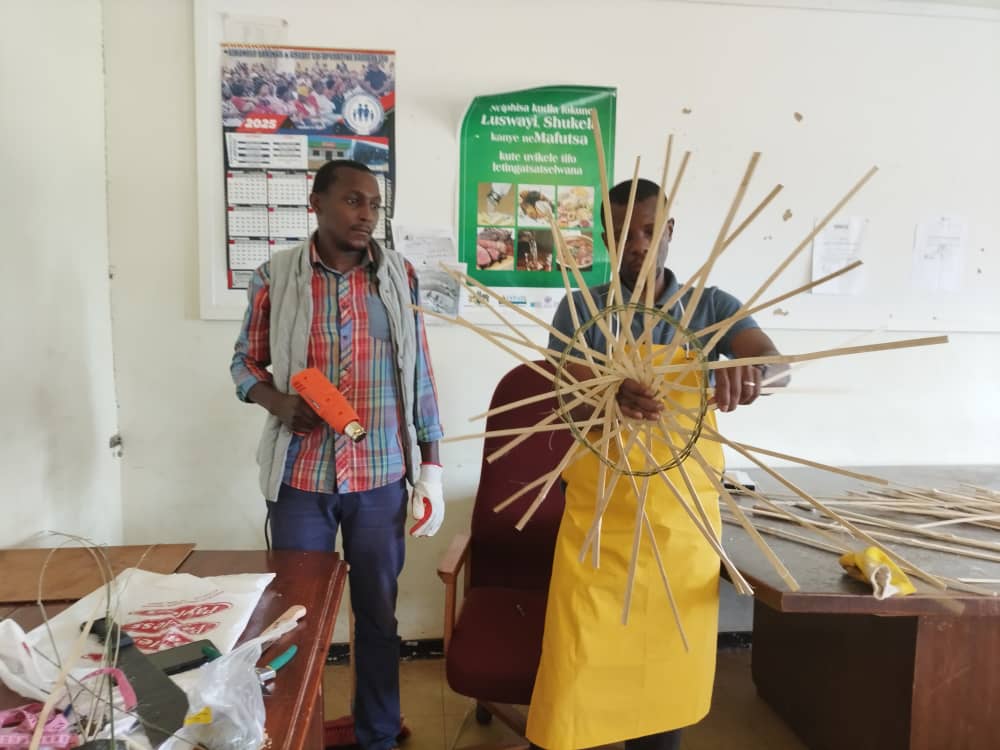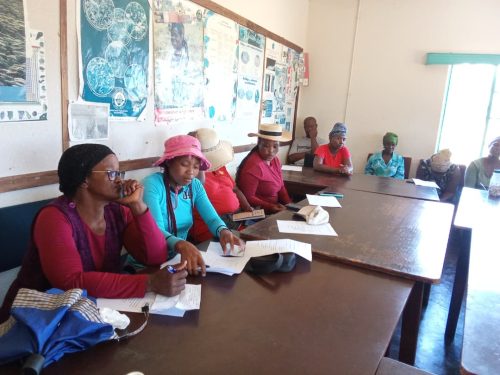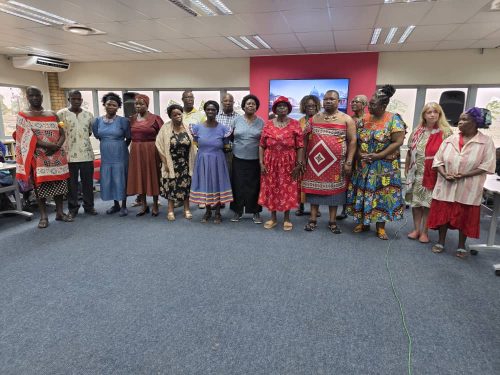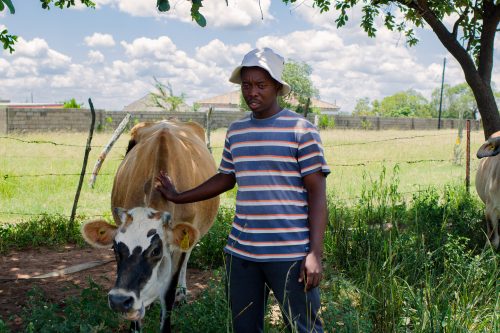BY PHESHEYA KUNENE - EDITOR
LUDZELUDZE - Eswatini’s bamboo initiative is gathering decisive momentum, positioning the once-overlooked plant as a viable economic and environmental lifeline for rural communities.
What was once viewed as a fringe agricultural experiment is rapidly evolving into a national strategy one poised to blend ecological restoration with rural wealth creation. With its fast growth, resilience, and market versatility, bamboo is emerging as a green commodity capable of rewriting the trajectory of Eswatini’s farming landscape.
A Powerful Solution Rooted in Science and Need
The background of the bamboo project is anchored in two critical national realities:
severe land degradation and limited income opportunities in rural areas.
Across Eswatini’s countryside, decades of soil erosion, extreme weather, and traditional land-use patterns have left landscapes fragile and farmers vulnerable. Bamboo, with its dense root network and remarkable regenerative capacity, offers an evidence-based solution to reversing this damage.
Agronomists note that bamboo stabilises soil, restores vegetation cover, and improves water retention — an urgent necessity in regions increasingly affected by drought and erratic rainfall. For communities living on degraded plots, bamboo is not simply a crop; it is a restoration tool with economic dividends.
A Green Value Chain with Real Market Promise
Beyond its ecological advantages, bamboo is opening new commercial frontiers.
Global demand for bamboo-based products, from furniture and flooring to charcoal briquettes, fabric, cosmetics, construction panels, toothpicks, and even medicinal extracts — is expanding rapidly. Eswatini’s project, therefore, places farmers at the doorstep of emerging industries that leverage sustainable materials.
Because bamboo matures faster than hardwoods and offers multiple harvest cycles, it allows farmers to generate income consistently. Its by-products can feed cottage industries, women-led cooperatives, youth enterprises, and community manufacturing hubs.
This is where the project becomes transformative: it does not only grow bamboo; it grows value chains, jobs, and new entrepreneurial pathways in rural Eswatini.
Government Commitment Anchored in Long-Term Vision
The bamboo initiative is being championed across government structures as part of a broader national shift toward green growth.
Key ministries and implementing partners have underscored the project’s importance in:
boosting rural households’ incomes,
reducing environmental vulnerability,
promoting climate-smart agriculture, and
repositioning Eswatini as a player in the global bio-economy.
Training programmes, technical demonstrations, research trials, and community mobilisation activities now form the backbone of implementation. Extension officers are guiding farmers on bamboo propagation, nursery establishment, harvesting, and market-linked usage — ensuring that the project is not an event but a continuum.
Communities Embrace a New Agricultural Identity
In many chiefdoms, the excitement around bamboo is palpable. Farmers who once depended solely on maize, legumes, and small livestock now see bamboo as a dignified economic alternative.
Women’s groups are already exploring household-level by-products, while youth are positioning themselves for opportunities in bamboo furniture, craft production, and sustainable construction.
The plant is changing not only planting habits but aspirations — inspiring rural families to imagine a greener, more financially secure future.
A Strategic Blueprint for Eswatini’s Agricultural Future
The bamboo project is fully aligned with global goals on environmental stewardship, carbon sequestration, and the transition to sustainable, non-timber value chains.
In the long term, the initiative is expected to:
restore degraded landscapes,
reduce pressure on indigenous forests,
create green jobs,
strengthen climate resilience, and
position Eswatini as a regional model for bamboo commercialisation.
By rooting its strategy in science, community empowerment, and market forward-thinking, the project embodies what modern agriculture should look like — inclusive, regenerative, and economically sound.
A Call to the Nation: Invest in a Greener Tomorrow
For aspiring farmers, youth groups, cooperatives, and investors, the bamboo initiative offers an opportunity that is as practical as it is visionary. Now is the moment to step into a value chain with global demand, domestic need, and unlimited creative potential.
Bamboo is no longer the plant at the periphery. It is the future taking shape, one shoot, one community, one harvest at a time.



